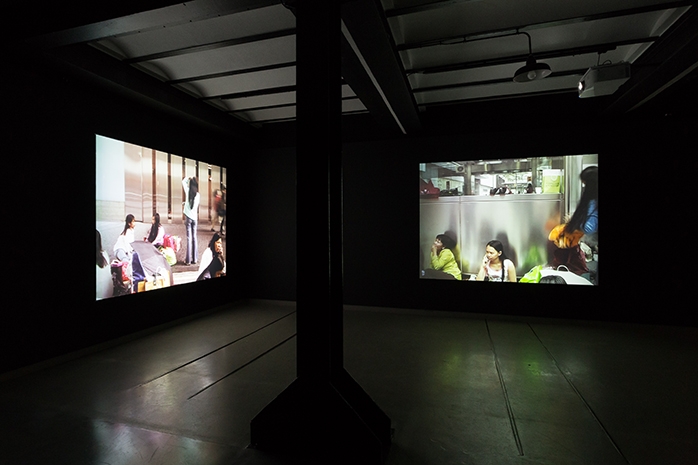Archive and Democracy is an audiovisual essay José Maçãs de Carvalho (b. 1960), the record of a sort of “event”, whose central character is an underground, practically invisible community – Filipino immigrant domestic workers who live with their employers six days a week. On Sundays, they emerge to block and appropriate the streets, a human mass that “occupies” spaces creating territory, acquiring the density of a sort of sisterhood and making public and private space overlap.
In this exhibition, the videos functioned as a counterpoint to the series of photographs: while in the latter Hong Kong functions because it is far, as a skyline (a “sight-seeing” experience), as a landscape or “image of architecture”, in the former, the streets of Hong Kong are a place (a “site-seeing” experience), an inhabited, lived place, where people rest, sing, dance, celebrate, eat lunch and comb their hair.
Archive and Democracy proposes a narrative discontinuity that summons the exhibition space: architecture becomes a structural element of the project establishing a relationship between a range of audiovisual components – moving images, with sound or mute (sequences and loops) and still images.
